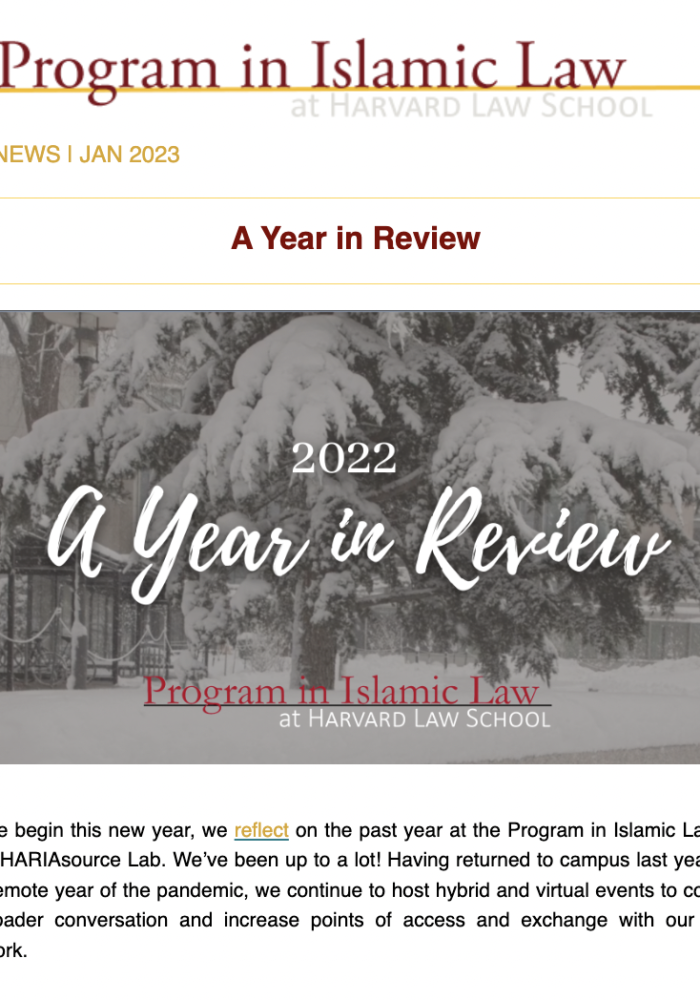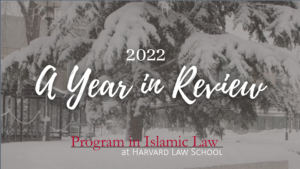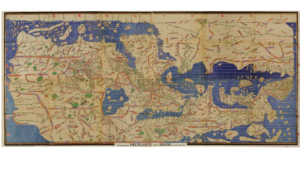
 |
A Year in Review As we begin this new year, we begin this new year, we reflect on the past year at the Program in Islamic Law and the SHARIAsource Lab. We’ve been up to a lot! Having returned to campus last year after the remote year of the pandemic, we continue to host hybrid and virtual events to continue a broader conversation and increase points of access and exchange with our global network.
|
 |
CONTENT: Legitimizing War within the Ottoman Empire One aim of SHARIAsource is to provide access to primary sources of Islamic law to support research on salient issues of Islamic law and history, to translate key sources into English, and to otherwise make sources accessible and contextual to a broader community of researchers and general readers. This month, we feature an Ottoman formal explanation for the war with Russia in 1768, which Michael Talbot translated into English. This declaration, or beyānnāme, was sent by the Ottoman reʾīsül-kuttāb (chief scribe) to Britain’s ambassador to the Ottoman Empire in attempt to justify the Ottoman declaration of war on Russia on claims of Russia’s violation of treaty obligations. The document gives insight into how the Ottoman empire legitimized war, how legal plurality functioned within war, and Ottoman ideas of international law and its relationship with Islamic law. For more on Ottoman officials’ engagement on the war with Russia in 1768, read Professors Will Smiley and Aimee Genell‘s essay “Ottoman Empire: War and Peace” in the Roundtable on the History of Islamic International Law.
|
 |
CONTEXT: Roundtable on the History of Islamic International Law Last month, we convened a live Roundtable on the History of Islamic International Law. Organized by Intisar Rabb (Harvard Law School) and Umut Özsu (Carleton University), who are editing a volume on the subject for the Cambridge History on International Law, this Roundtable brought together the contributing authors to that volume – all historians and legal scholars selected for their expertise on the contested status of various visions of international law from the medieval Islamic world to the Ottoman era (622-1923), spanning a variety of regions from across the globe. During the Roundtable webinar, contributing scholars reflected on and deliberated the larger themes, lingering questions, and ongoing debates surrounding the history of what we have become accustomed to calling ‘international law’. The discussion continued on our Islamic Law Blog, where we published essays and summaries that preview the Cambridge volume and that emerge from Roundtable itself. |

